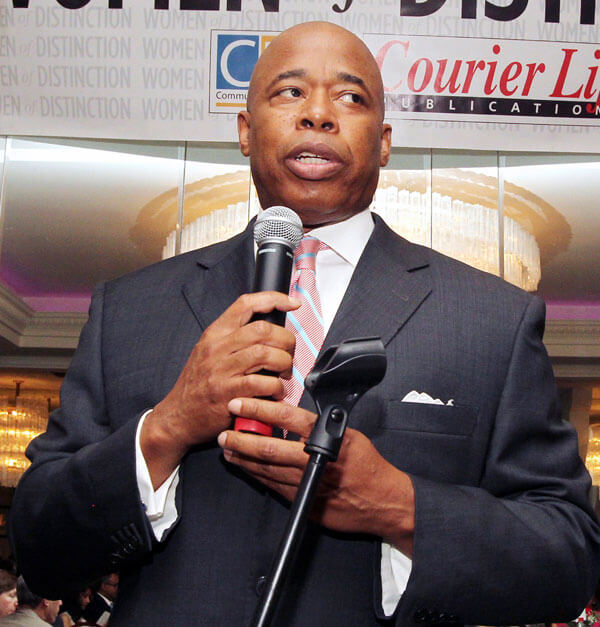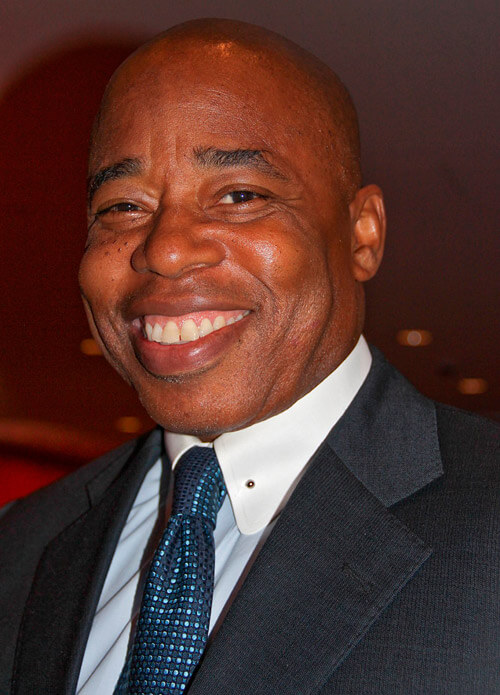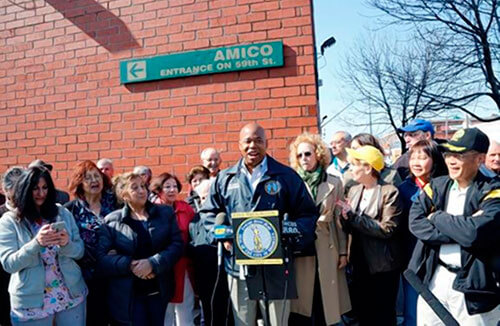Brooklyn Borough President Eric L. Adams recently hosted “400 Years of Fortitude,” a ceremony commemorating the anniversary of the first enslaved Africans’ arrival in Virginia in 1619.
The event paid tribute through art, artifacts, dance, drums, fashion, songs It also featured a keynote address from Dionne Bennett, assistant professor of African American Studies at City Tech, City University of New York (CUNY), and an awards ceremony for notable attendees.
At the event, Adams officially announced a trip he is taking later this month to Gorée Island, a district of the capital city of Dakar in Senegal and an important site in the history of the Atlantic Slave Trade.
He also declared a sister city agreement with the island, “which signifies a long-term partnership between two communities in two countries that touches on cultural exchange, economic development and other important areas,” Adams said.
In anticipation of his trip, he presented a “Key to the Borough,” symbolizing the opening of the “Door of No Return,” a memorial to those who were sold into slavery.
According to a New York City Department of City Planning (DCP) 2013 report, Africans make up about 4 percent of the city’s foreign-born population, a growing presence among recent arrivals to the five boroughs.
“Four hundred years ago, a ship of African slaves on these shores, condemned to a life of bondage in an unfamiliar country,” Adams said. “Their arrival changed the course of history, launching a centuries-long struggle for freedom and equality that in many ways continues to this day.
“We were so proud to host an event marking this grim milestone, while also celebrating the many contributions African-Americans have made and continue to make to our borough and city,” he added.
“My trip to Gorée Island later this month will be a recognition of the solemn history of the slave trade from one of the places it originated.
“But I am also going in the spirit of partnership with our African brothers and sisters,” Adams continued. “We have come so far since 1619, but so much work remains to be done.”


























